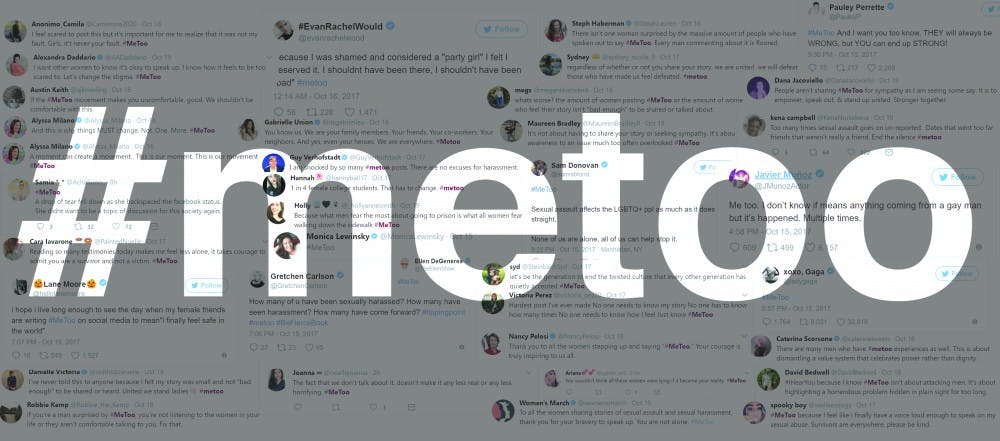EDITORIAL: #MeToo created a powerful tool to raise awareness to the pervasiveness of sexual misconduct in the U.S.
Ten years ago, activist Tarana Burke started #MeToo.
She created it to help empower woman survivors of sexual assault, harassment and exploitation.
It was a response to her own experience as a youth camp counselor. She was approached by a young girl who started to tell her about her step-father and the abuse she was enduring.
Burke cut her off. She told the girl she would find another counselor who could "help her better."
In a post on the website of JustBeInc, a youth organization focusing on the well-being of women of color, Burke said, " I could not muster the energy to tell her that I understood, that I connected, that I could feel her pain. I couldn't help her release her shame, or impress upon her that nothing that happened to her was her fault."
#MeToo is a rallying cry for survivors.
The words give survivors a way to say, “I hear you. You’re not alone.”
Here on campus, we hope survivors feel they have the power and the ability to come forward and be heard.
To any survivor who doesn't share her story, know that you're never alone.
There are always places you can go on.
On campus, the Office of Civil Rights and Institutional Equity (OCRIE) is where survivors can report sexual misconduct. The office is in the Bovee University Center, Room 306.
Sexual Aggression Peer Advocates (SAPA) is a group on campus dedicated to listening, helping and giving resources to any survivor of sexual aggression.
SAPA has a 24-hour confidential support line and a crisis intervention resource.
There is also Listening Ear in Mt. Pleasant. Their 24-hour crisis line where professionals will help you explore options and resources to help you, or even just listen to you if you need to be heard.
You are never alone.
#MeToo goes beyond the computer screen.
You would be hard pressed to go anywhere on campus and not find a student, staff or faculty member who isn’t a victim of or knows someone who’s been sexually assaulted or harassed.
This movement goes out to them: both the vocal and the silent — the person who is posting their story about being harassed or assaulted and the person who doesn’t feel comfortable coming forward with that information yet.
This is for the woman who has her butt slapped walking to class or is catcalled and infantilized at work or on her way home. It’s for all the hey baby’s and much too forward touches we simply excuse as being overly friendly. It’s for the people who feel responsible to explain away another person’s guilt by wondering if they did something to lead their harasser on or if they would have acted another way, would this have happened?
We say, enough.
We say being complacent and ignoring the issue isn’t enough anymore.
And in this newsroom, along with countless others on and around campus, we also say #MeToo.







